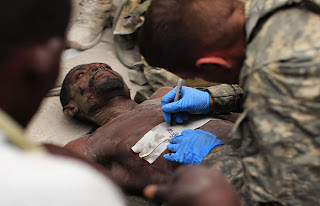In today's class we will review "
Crap Detection" by Howard Rheinghold and focus on some basic tenets to ensure accuracy in our writing.
Activity 1:
http://www.sfgate.com/cgi-bin/blogs/rheingold/detail?entry_id=42805
Perform the “CRAP” test on Rheinghold’s article
Write a blog entry (not a comment) on your findings
Include an image that relates to your topic
Remember: remain professional and neutral in your writing style and tone
CRAP Test:
Currency –
- How recent is the information?
- How recently has the website been updated?
- Is it current enough for your topic?
Reliability –
- What kind of information is included in the resource?
- Is content of the resource primarily opinion? Is it balanced?
- Does the creator provide references or sources for data or quotations?
Authority –
- Who is the creator or author?
- What are the credentials?
- Who is the publisher or sponsor?
- Are they reputable?
- What is the publisher’s interest (if any) in this information?
- Are there advertisements on the website?
Purpose/Point of View –
- Is this fact or opinion?
- Is it biased?
- Is the creator/author trying to sell you something?
Examples of Common Mistakes
Names and titles - these go wrong more than anything else
Numbers and math – “Anytime journalists get their hands on numbers and math there’s a huge probability that things will go wrong” ~ Craig Silverman
Typos -You can blame spell check programs for some of these though it's best not to rely on these programs
Misquotes and misidentifications – “I’ve seen a lot of men become women, mothers become daughters" (Silverman). It can get really bad when identifications are mixed up and a crime is involved.
Activity 2:
Go online
Look for a factual or grammatical error in a local news publication
Add your finding (with a link to the original article) and correction as a comment to today’s lecture post
20 minutes
Checklists:
In a 2000
article for the British Medical Journal, James Reason (one of the world’s leading researchers of human error) emphasised that “it is often the best people who make the worst mistakes - error is not the monopoly of an unfortunate few.”
Examples of Checklists:
Detroit Free Press and the
San Jose Mercury News
We Regret the Error -
Accuracy Checklist:
Activity 3:
Find a news story in a local publication
Go on a fact-checking mission
Complete as many of the accuracy check-list points
Create a blog post
Include all bibliographic information of your chosen story
Include your analysis of accuracy errors and corrections
Embed an image appropriate to your topic
Write a short paragraph on the importance of accuracy in journalism
Homework:
Read Chapter 4
Note: Top image, "Fact or Crap," from
Calendars.com.au.
 In the article from the Edmonton Journal, posted today, of a man rescued in Haiti, has to checked out as far as the checklist goes. It also touches on aid that is coming into the country as well as efforts to help clear the rubble. The reporter writes that helping out are several thousands of US troops, yet does not mention that there are many people concerned that such an American presence is a subtle takeover. Considering that this is supposed to be a good news story, I can understand why. Maybe the reporter could just do another story on the US presence in Haiti. They are armed really well....
In the article from the Edmonton Journal, posted today, of a man rescued in Haiti, has to checked out as far as the checklist goes. It also touches on aid that is coming into the country as well as efforts to help clear the rubble. The reporter writes that helping out are several thousands of US troops, yet does not mention that there are many people concerned that such an American presence is a subtle takeover. Considering that this is supposed to be a good news story, I can understand why. Maybe the reporter could just do another story on the US presence in Haiti. They are armed really well.... 
